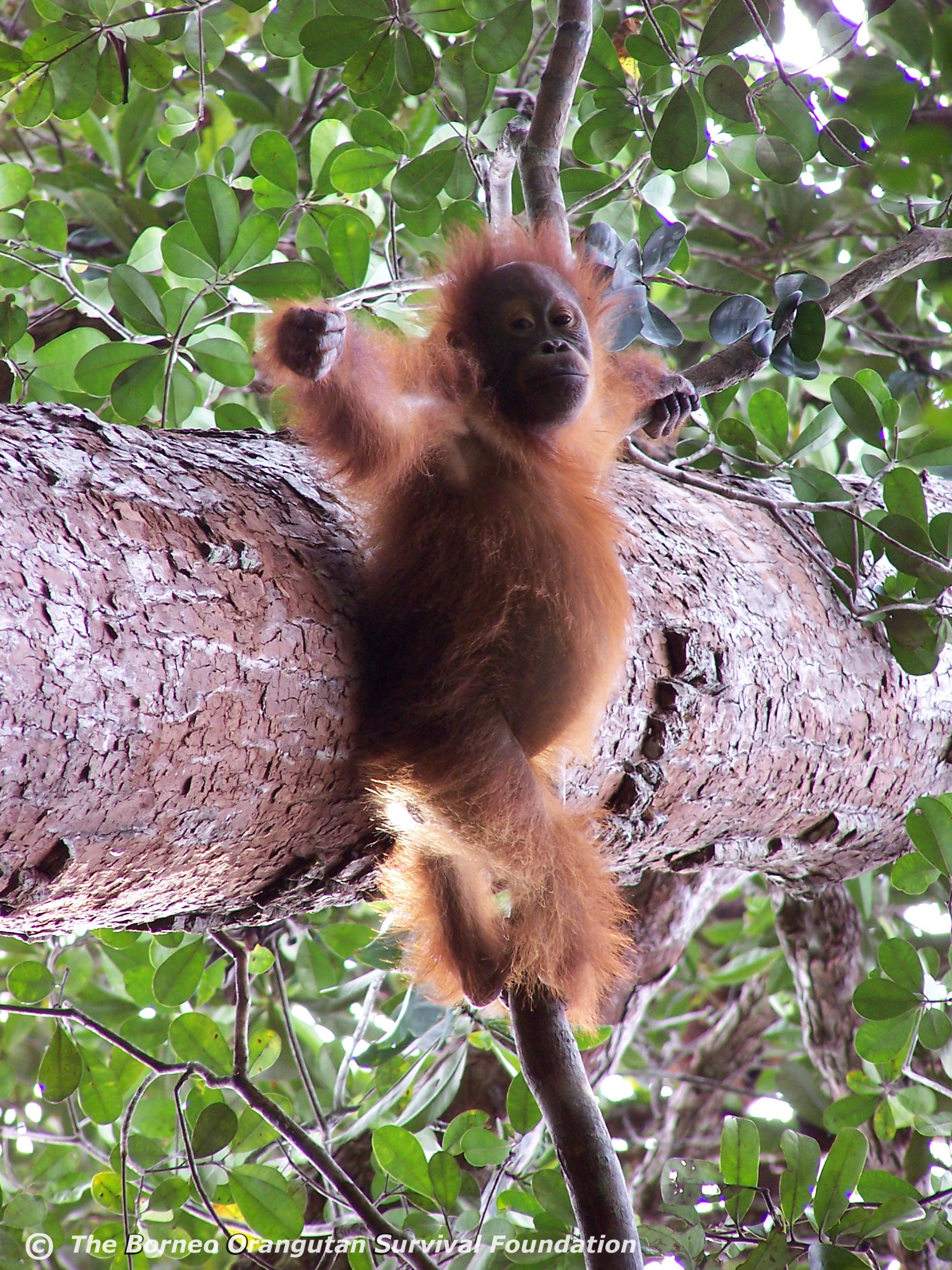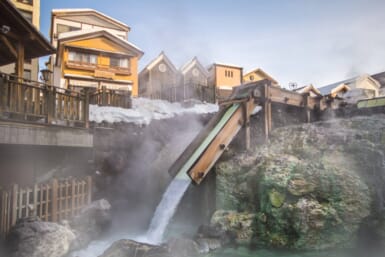Michael And Miki Tan Are Out To Save The Orangutans
by Jason Paul Revelle with Michael Tan
Until now, the biggest challenge teacher Michael Tan and his wife Miki have had to face was finding their way around building a brick wall in their backyard. However, their next gig is quite a step up, in more ways than one: they plan to walk from Hokkaido to Kagoshima on takeuma, otherwise known as stilts. Let me say that again: on stilts. As you can imagine, the two have gotten used to looks of bewilderment when introducing themselves and the details of their upcoming adventure, which just happens to begin on July 1st. One gargantuan question comes to mind here: why would anyone try to do this? Well, the answer lies in Borneo and in a quest to save orangutans…
Please give me a brief introduction of yourself and your background. I began life as a high school PE teacher in Australia, and after following the obligatory, antipodean teaching trail to basically every other country except Australia, I decided to satisfy a childhood curiosity by coming to see the land of the rising sun. Something must have clicked because here I am, now a teacher at Shibuya Makuhari High School in Chiba, taking a year off to do this crazy stilt-walking challenge down the length of Japan. It’s called the Pongo Hogo Hogo Challenge.
So what exactly does this adventure consist of? From where to where are you going? The challenge is to walk on stilts down a well-worn path, from Soya Misaki in Hokkaido to Sata Misaki in Kagoshima. We won’t have any support vehicles or teams, and all food, water, and tents will be carried by us. The aim of this challenge is to raise $50,000 to protect rainforest land in Borneo, and in turn, the orangutans that live there. As such, all costs associated with the challenge will be covered by us from our savings. The main focus of this challenge, however, really isn’t about us—it’s about the students of Japan.
How so? Unlike our childhoods, most kids today are keenly aware of what is going on in the world around them, particularly with the environment. Despite this awareness, however, almost all the kids we spoke to don’t seem to think they can do anything to help. So, we decided to make a challenge that would not only give them a real chance to help, but also show them that no matter how impossible something may seem, such as saving a forest or walking 3,000 kilometers on stilts, if you just put your head down and start, anything is possible. As such, a big part of this challenge will be to visit schools along the route to see if we can get them interested in working together for this cause.
How did you come up with this idea? Miki and I have always been aware of these issues from what we read in the papers or see on the news, just like the kids we’ve spoken to. And I think like most people, we too always thought, “We’ve got to do something.” But where do you start? The impetus for us began with a simple diary entry from a student. Part of a course I was teaching looked at global warming, and we were focusing on the issue of deforestation in Borneo and how orangutans are facing extinction because of it. For homework, the kids had to write a reflective diary on the lesson, and while most were well aware of the issues, the most common comment was, “We can’t do anything about that because we are students,” or “Those issues are happening overseas, and because we are Japanese, we can’t do anything about them.” I showed Miki this stuff, and as two people who had also been thinking about these things, it was a powerful message. We talked and decided that we wanted to do something, and we came up with this.
What do you hope to achieve from doing this? Well, compared with the Amazon, Borneo’s rainforests have received far less international exposure, and as a result, the rate of deforestation is growing alarmingly—more than six football-sized areas of land disappear every minute, and all to produce a product that has become a part of all of our lives: palm oil. Here in Japan, it can be found in our bread, soap, shampoo, and noodles. The problem is not palm oil itself, but the way it is being produced. Palm oil production uses the most cost effective—and unsustainable—methods possible. The result has seen not only a loss of 80 percent of Borneo’s rainforests, but also the emergence of a very grim future for one of our closest relatives, the orangutan. If the current rate of deforestation continues, orangutans will be the first of the great apes to become extinct, with some estimates saying as early as 2012. Very few of the non-profit organizations (NPOs) working for orangutans have focused on protecting the forests they live in, so we were reluctant to go to so much effort if we couldn’t find one that addressed the issue of deforestation, which is central to the problem. Additionally, because we are doing it here in Japan, we wanted to make sure that the NPO we worked with was also here. I don’t know if there was any divine intervention in our decision to work with Borneo Orangutan Survival Foundation Japan (BOS Japan), but just as we were about to give up hope of ever finding a suitable NPO, we were told of a new project that will be organized by BOS Japan that aims to do exactly what we were hoping to do: to protect the forests of Borneo and the orangutans that live there.
What does their level of involvement consist of? Basically, we are doing this by ourselves, but BOS Japan has given fantastic support and lots of advice since the beginning, and all of the planning has been done by us. We couldn’t accept sponsor support because of our aim of targeting schools, in order to get involved in school-based fundraising. But in a way, it means we also aren’t obligated to anyone, which is nice.
I understand, but one big question still remains: why stilts? (Laughs) Please ask Miki! I think she suggested it as a joke initially, but the more we thought about it, the more it really fit the challenge. Neither of us could walk on stilts at all when we thought of this, so it acted as a nice metaphor for what this is about. How can two people possibly walk 3,000 kilometers on stilts if they can’t even walk three meters? However, then the same could be said about the forests: how can we possibly do anything if we are just students? Also, because we are doing it in Japan, we thought it would be nice if we chose something Japanese—takeuma—to do it with. However, thoughts and reality might prove to be very different.
What areas of Japan will you walk through? We will be keeping to the costal areas, in order to avoid most of the mountains and big cities. Most of the places we will visit will be small towns and cities.
Yeah, I was wondering: Japan is a very mountainous country; how do you plan to cope with that? Very slowly on the way down; 15kg on your back is a completely different experience when you are walking downhill—on stilts.
What sort of training have you been doing to prepare yourselves for this challenge? We started learning how to walk on stilts a year ago, and went out before work in the mornings for an hour. We are now best friends with all of the grandfathers and mothers who walk around our area in the mornings.
If you could compare yourself to any other daring adventurer, who would it be? To be honest, we haven’t thought about that at all. We are just two people, like anyone else, who just wanted to do something to help. Maybe the only difference is that we have been able to devote a bit more time to doing that than others can.
How would you describe yourself? I’m just a person with a little thirst to find out what is around life’s next corner.
Borneo Orangutan Survival Foundation (BOS) Japan, a nonprofit organization working as a branch of the international network of the Borneo Orangutan Survival Foundation, is supporting Mike and Miki Tan in their challenge to help save the Borneo orangutans. In Kalimantan, in the Indonesian part of Borneo, BOS operates two rehabilitation centers for orphaned and confiscated orangutans, and conducts land rehabilitation projects as well as habitat conservation projects, bringing benefits to the local communities and more.
For more details, please visit: www.bos-japan.jp (Japanese only) http://redapes.org www.orangutanisland.org
If you’d like to help out with Michael and Miki’s quest to save the orangutans, please donate through the following: From Japan Postal Bank Account Name: ポンゴホゴホゴプロジェクト Account Number: 00190 – 4 – 484794 From Other Banks Bank: Japan Postal Bank Account Name: ポンゴホゴホゴプロジェクト Branch Number (店番): 019 Account Number: 0484 794 Or see their site at: http://savepongo.blogspot.com









